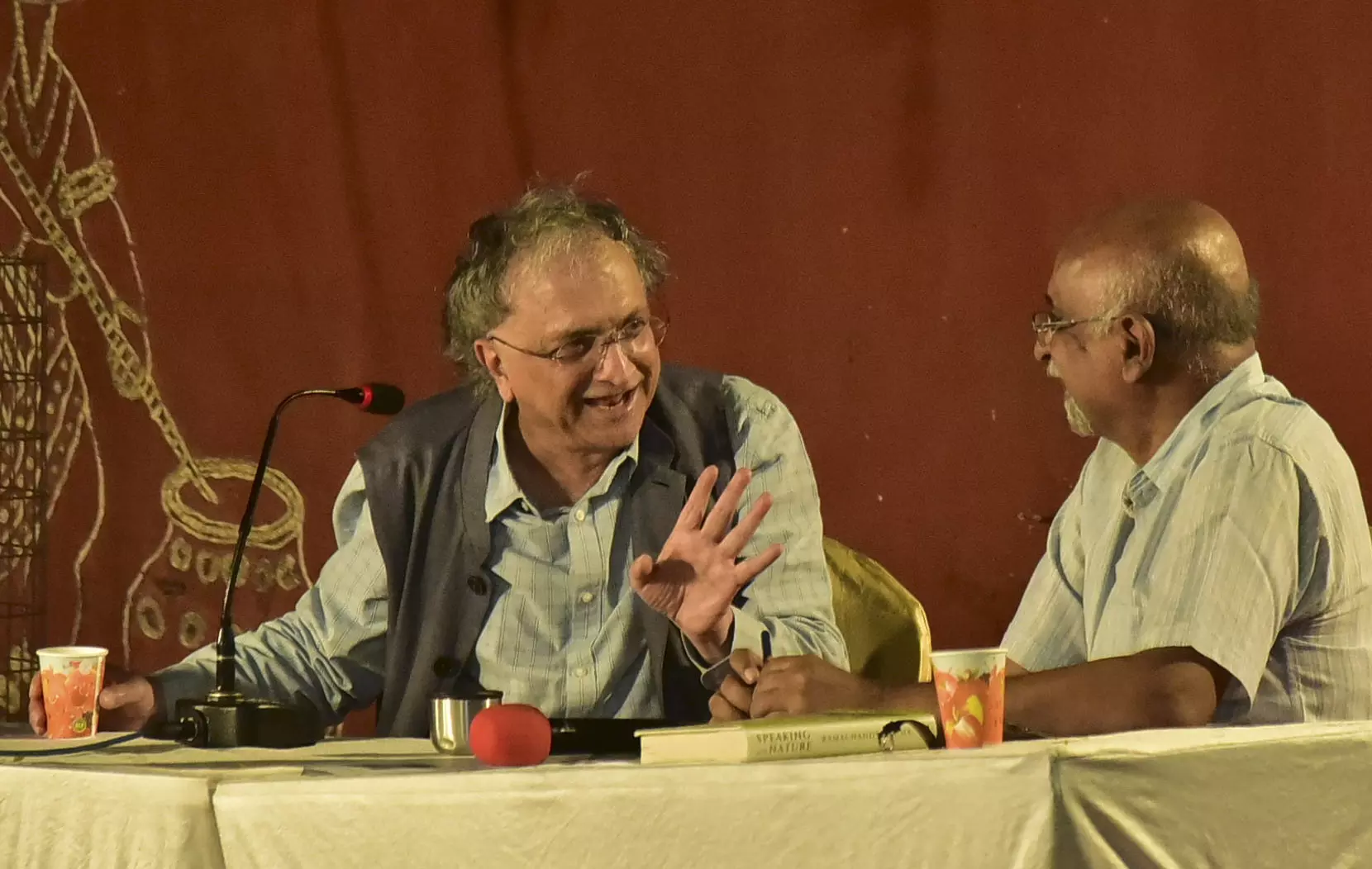Speak with Nature, Not Just for Nature: Guha Advises at Vidyaranga High Event

Hyderabad: Historian and environmental thinker Ramachandra Guha inspired citizens to 'speak with nature' and not just 'for nature' at a talk and book-signing event at Vidyaranga High School on Friday. He started his speech by reminding the listeners that 2023 was the 50th anniversary of the groundbreaking Chipko movement that had gathered socialists, activists and citizens alike to save trees.
He highlighted the fact that during the 1970s and 1980s, intellectuals tried to combine environmentalism and social justice. He was talking about his new book, 'Speaking with Nature: Origins of Indian Environmentalism,' published by Harper Collins.
Providing a brief of his book, Guha said, "Chipko movement combined a concern for environmental conservation with an equally abiding concern for community rights and social justice. It was an environmentalism of the poor. It was then followed by an anti-environmental battle. Particularly in the 2000s, when India embraced the approach of economic liberalisation, elements of it were very necessary.”
“What was not necessary was the removal of the safeguards on forests. This is because the market cannot solve our environmental problems. The idea that environmentalists were bad and were stopping India from making use of resources that could harness development was in the air until the climate change debate entered the scene. A large number of young people are also actively participating in the environmental debates now and highlighting how humanity faces an existential crisis caused by its own crime against nature."
Guha stated that the book includes biographies of 10 thinkers who engaged with environmental conservation. Three of them were writers —Rabindranath Tagore, M. Krishnan and K.M. Munshi; three were activists associated with Gandhi: Mira Ben, J.C. Kumarappa, Verrier Elwin; and the other four were scholars, town planner Patrick Geddes, agricultural scientists Gabriel and Albert Howard and economist Radhakamal Mukherjee.
"All these thinkers wrote and spoke in different insightful and often pleasant ways about human relations with nature. They were early environmentalists. Even though they may not have used the term to describe themselves but what they wrote about, how they argued, what kind of moral and social lessons they drew from the nature, helps us see how the debate on environment and nature spans an entire century, from the 1880s to the 1980s. They were also working in different parts of India so that talks about the diversity of Indian landscape," he said.
Guha stated that the book was important for him as he took him back to his beginnings. "I grew up in the time of Chipko movement and then met ecologist Madhav Gadgil who influenced me immensely both professionally and intellectually. Then I moved into politics and started writing about Gandhi. This book is a return to my ecological roots," he said.
In conversation with Rammanohar Reddy, Guha highlighted the hypocrisy of developed nations who have pushed the idea of development vs environmentalism, which Guha specified was a false dichotomy. "Sustainable development cannot take place without the idea of environmental conservation and social justice in tandem with each other.
Reddy also brought up that Guha had mentioned Indira Gandhi's popular statement, 'Aren't poverty and need the greatest polluters,' that she made as part of her speech at the first global conference on human environment (UNHCE) in Stockholm in 1972.
To this, Guha responded by saying that there are two sets of polluters: the rich who destroy environment for profit and the poor who destroy it for survival. He explained that the policy makers have stopped listening to the researchers despite there being huge advancements in ecological research.
"Not poverty but asymmetric access to resources, a disregard of environmental constraints and most importantly, misuse of scientific expertise is to be blamed. The climate change debate saved the environmentalists but even without climate change, Indian environment has been screwed up phenomenally. We have ecological dystopias like Gurgaon and all our lakes and rivers are biologically dead," Guha said.

